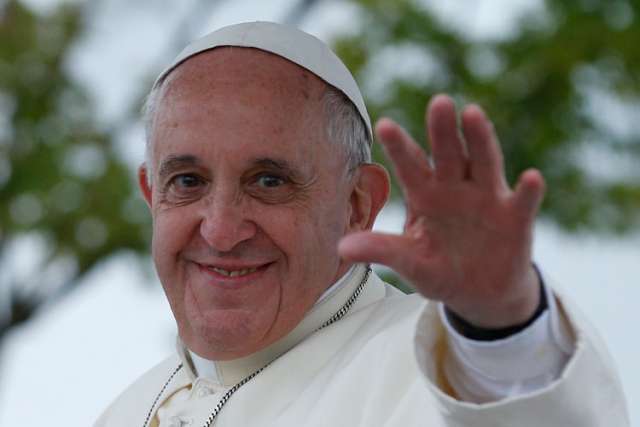As the pope flew across Chinese airspace on his return flight to Rome, he sent a telegram — his second during the trip — to President Xi Jinping, expressing his “divine blessings” for the powerful leader and the Chinese people.
“I wish to renew to Your Excellency and your fellow citizens the assurance of my best wishes, as I invoke divine blessings upon your land,” the telegram said.
Francis was the first pope in history to be granted permission to fly over China, and he used the opportunity in both directions to create the opportunity for new dialogue. In another first, a group of young Chinese Catholics overcame bureaucratic obstacles and made it to Seoul to take part in Asian Youth Day.
China’s Foreign Ministry has reacted positively to the pope’s telegrams and already indicated it wants to promote dialogue with the Holy See after decades of frosty relations.
Lionel M. Jensen, associate professor of East Asian Languages and Cultures at the University of Notre Dame, said that China is beginning to recognize Francis as a “ force of universal peace and human sanctity.”
“This is a key concern for China, as it has often portrayed the Vatican and the pope as authorities bent on conversion of Chinese whose lives and religious affairs are the exclusive concern of the Beijing government,” Jensen said in an interview.
On Sunday, Francis said Asian governments should not fear Christians who did not want to “come as conquerors” — a message clearly targeted at countries including China, North Korea and Vietnam.
The Catholic Church in China is divided into an “official” church known as the “Patriotic Association” answerable to the Communist Party, and an underground church that swears allegiance only to the pope in Rome.
But Romano Prodi, a former Italian prime minister who now teaches at the China Europe International Business School, said the pontiff had broken through China’s mistrust, calling it a “very different approach from the past.”
“For Bejing, Francis is a genuine and fitting leader because this pope comes from Latin America, and so China does not see him as a representative of Western interests or of having a Eurocentric mindset,” Prodi told the Italian daily, Corriere Della Sera.
Before departing from Seoul on Monday, the pontiff urged Koreans — from both the North and the South — to reject “suspicion and confrontation” and find new ways to build peace on the divided peninsula.
“Let us pray, then, for the emergence of new opportunities for dialogue, encounters and the resolution of differences, for continued generosity in providing humanitarian assistance to those in need, and for an ever greater recognition that all Koreans are brothers and sisters, members of one family, one people,” Francis said.
He delivered the message at a moving reconciliation Mass at Seoul’s main Myeong-dong Cathedral attended by South Korean President Park Geun-hye as well as North Korean defectors.
The pope’s plea for peace came as the U.S. and South Korea started a joint military exercise that was immediately condemned by North Korea as it warned of “merciless” retaliation against the allies.
The Mass was the final event of a triumphant five-day papal trip that confirmed the importance of Asia for this pontificate and for the Catholic Church.
“For the future growth of Catholicism in Asia, the pope’s visit will act as an accelerant,” said Jensen. “The effects of his time in Korea should be understood like ripples across a pond from a pebble’s drop. The reach will be considerable, and it is clear that this is an effect he is seeking.”


